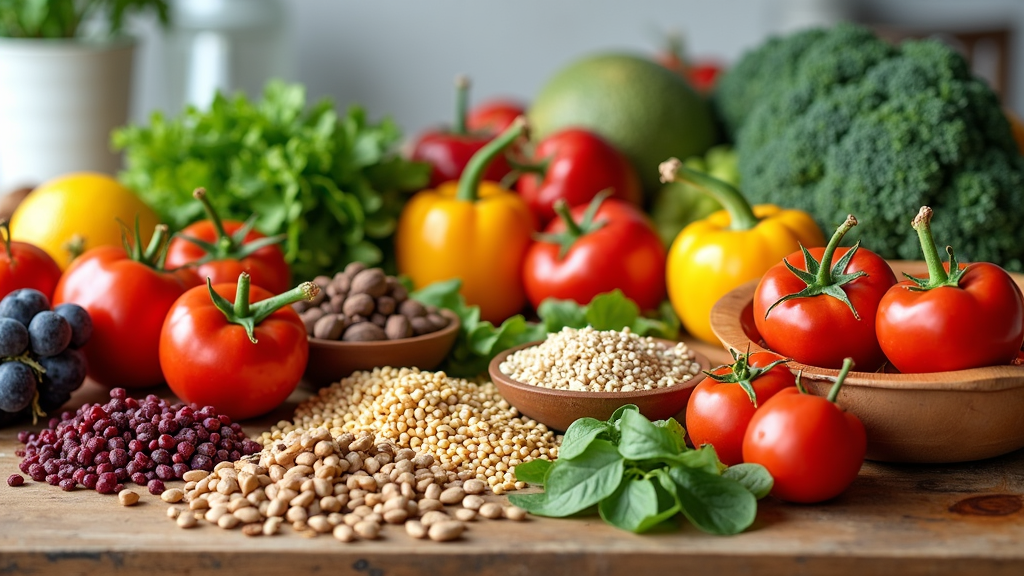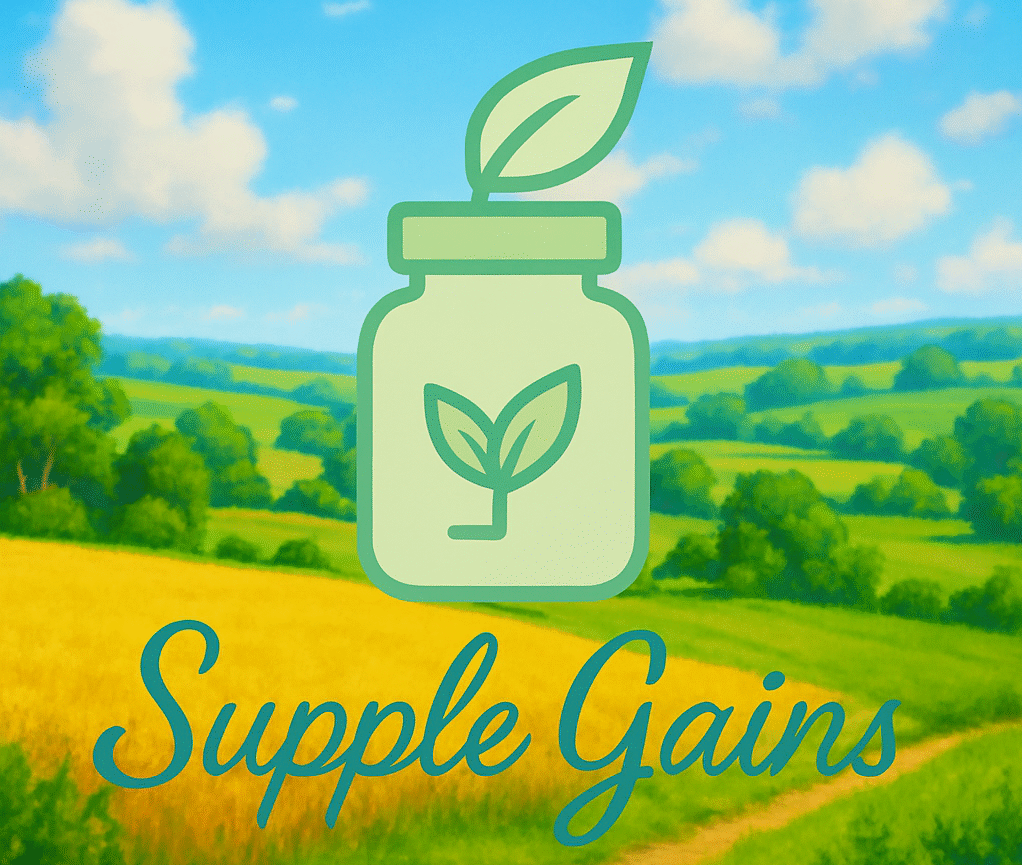Adopting a plantbased diet brings plenty of health perks, but making sure you get all the nutrients your body needs is really important for feeling your best. There’s a lot of buzz around going plantbased these days, from full vegans to those who just want more veggies on their plates. I’m walking you through essential nutrients, why they matter, and how you can keep your plantbased diet balanced and healthy.

Why Nutrient Balance Matters on a PlantBased Diet
A plantbased eating style means focusing most or all meals around foods from plants—fruits, veggies, beans, nuts, grains, and seeds. Leaving out animal products can offer several benefits, including a lower risk of heart disease, diabetes, and certain cancers. But there’s a catch: some key nutrients are a little harder to get from plants, so a little planning goes a long way.
Some essential vitamins and minerals are naturally found in high amounts in meat, dairy, and eggs, so when you go plantbased, you’ll want to make sure you’re not missing out. Getting creative with your food choices and knowing what to look for makes plantbased eating both tasty and satisfying.
Research backs up the need for aware nutrition. According to the Academy of Nutrition and Dietetics, wellplanned vegetarian diets can work for all life stages, but extra care is helpful for nutrients like vitamin B12, iron, calcium, omega3s, and more.
First Steps: Basics of Essential Nutrients
Kicking things off with the basics, plantbased diets give you loads of fiber, antioxidants, and healthy fats. Let’s zero in on the essential nutrients many plantbased eaters keep an eye on:
- Protein: Helps your body repair and build tissues, muscles, skin, and hormones.
- Vitamin B12: Important for nerve function and making DNA. This is almost only found naturally in animal foods.
- Iron: Needed for energy and healthy blood cells, but iron from plants isn’t absorbed as easily as from animal sources.
- Calcium: Keeps bones and teeth healthy, traditionally found in dairy.
- Omega3 Fatty Acids: Good for your brain and heart health.
- Zinc: Supports your immune system and helps your body heal wounds.
- Vitamin D: Supports bones, can be tough to get from plants or sunlight alone.
- Iodine: Important for thyroid health and metabolism.
Knowing which nutrients to look out for puts you in charge when it comes to thriving on a plantbased diet.
Protein: How to Get Enough on Plants Alone
It’s a common myth that plantbased diets don’t provide enough protein. Most people actually get more than they need if they eat a variety of foods. The trick is knowing where your plant protein is coming from and aiming for diversity in your meals.
- Legumes: Beans, lentils, chickpeas, and peas are super useful staples. They also pack in fiber for gut health.
- Whole Grains: Foods like quinoa, buckwheat, oats, brown rice, and barley help round out your daily protein intake.
- Nuts and Seeds: Almonds, cashews, sunflower seeds, hemp seeds, and chia seeds help boost your daily protein easily.
- Tofu & Tempeh: Both made from soybeans, these are easy swaps for chicken or pork in stir fries and salads. Try adding marinated tofu to a noodle or rice bowl.
Combining these foods throughout the day helps you get a full range of amino acids, which are the building blocks of protein. Even casual mixing up of grains and beans does the trick, so there’s no real need to worry about “protein combining” at every meal.
Vitamin B12: The Supplement You Probably Need
B12 is one vitamin that deserves some extra attention. It helps keep nerves and blood cells healthy and is found almost exclusively in animalbased foods. Deficiency can sneak up slowly, so most experts suggest getting B12 from fortified foods or a supplement if you rarely or never eat animal products.
- Fortified Foods: Breakfast cereals, plantbased milks, and nutritional yeast (look for “B12 added”) are easy ways to get your daily dose.
- Supplements: B12 tablets or drops work for most people and are typically affordable. Chewable or sublingual options can be a good choice, too.
Checking your B12 status with your doctor occasionally is a smart move if you’re fully plantbased. Symptoms of low B12—like tiredness and trouble with memory—can look like lots of other issues, so regular lab checks help.
Iron: Keeping Your Energy Up
Iron helps your body move oxygen to your cells. Plantbased eaters need a little more iron than meat eaters, since “nonheme” iron found in plants isn’t absorbed as easily as from animal sources. With a few easy strategies, you can boost your iron intake successfully.
- Super Plant Iron Sources: Lentils, beans, tofu, quinoa, pumpkin seeds, and spinach all give you plenty of iron.
- Boost Absorption: Combine ironrich foods with something high in vitamin C (think citrus fruits, bell peppers, or tomatoes) to help your body absorb more iron.
- What to Watch For: Tannins in tea and coffee, as well as calcium supplements, can slow iron absorption. Keep a time gap between these drinks and your ironrich meals for best results.
If you tend to feel tired, cold, or have pale skin, ask your doctor to check your iron levels. Women and athletes may need to focus even more on good iron sources.
Calcium: For Strong Bones Without Dairy
Calcium isn’t just in milk and cheese. There are plenty of dairyfree ways to keep your bones healthy. The key is knowing which foods provide the most calcium, and how much you need for your age group.
- Fortified Plant Milks & Juices: Many almond, soy, and oat milks have added calcium, as do some orange juices. Always give labels a quick look to see the added amount.
- Leafy Greens: Bok choy, kale, collard greens, and broccoli are worthwhile picks, but watch out—spinach is high in calcium but also in oxalates, which block absorption.
- Tofu: Especially the type made with calcium sulfate. Check the ingredients to be sure.
- Sesame Seeds & Tahini: Try these sprinkled on toast, salads, or blended into sauces for a big boost.
If you’re unsure about your intake, a calciumfortified food or a lowdose supplement can sometimes help, especially for kids or older adults. Also make sure you get enough vitamin D, since that helps your body use calcium.
Omega3s: Keeping Your Heart and Brain Happy
Omega3 fatty acids support everything from memory to heart rhythm. The most important kinds—EPA and DHA—mainly come from fish, but there are plantbased ways to include omega3s in your daily meals.
- Flaxseeds & Chia Seeds: Just a tablespoon of ground flaxseeds or chia a day is a simple way to step up your omega3 intake (the ALA type).
- Walnuts & Hemp Seeds: Enjoy these as snacks, add to oatmeal, or toss into smoothies for a boost.
- Algae Oil: For EPA and DHA, seek out algaebased supplements. These are veganfriendly and offer a direct plant source.
Mix these foods into your routine to support brain and heart health. If you want to be extra sure, check with your health professional about algae supplements.
Other Nutrients to Watch: Zinc, Vitamin D, and Iodine
Zinc
Zinc helps your immune system run smoothly and keeps your skin and hair healthy. Plant foods rich in zinc include beans, lentils, chickpeas, seeds, and whole grains. Because your body doesn’t absorb plant zinc as well as animal zinc, try sprouted or fermented foods to help your body get more out of what you eat.
Vitamin D
Vitamin D is tricky to get just from food, for plantbased or any eaters. Sunlight helps your body make vitamin D, but if you spend lots of time indoors or live in northern climates, consider a supplement or fortified plant milk. Having your doctor check your vitamin D levels is the best way to know where things stand.
Iodine
Iodine supports a healthy thyroid and keeps your metabolism humming. Plant foods have different amounts, depending on the soil. Sea vegetables like nori, dulse, or kelp, as well as iodized salt, can keep your iodine levels up. Sometimes a tiny supplement helps, but don’t overdo it.
Common Challenges and Practical Tips
- Meal Planning: Mapping out meals ahead of time helps make sure you’re getting the nutrients you need. A weekly grocery list filled with beans, greens, grains, nuts, seeds, and plant milk works well.
- Eating Out: Restaurants now offer more plantbased options than ever before. Check out menus online and use apps ahead of time. Don’t hesitate to ask for ingredient info so you can track down nutrientrich choices.
- Reading Labels: Nutrition labels on plantbased products make it easy to see which foods are fortified or offer more protein, B12, or iron. Give labels a onceover, especially if you stick with certain brands regularly.
Practical Ways to Build a Balanced PlantBased Plate
- Mix and Match: Combining grains with beans or nuts with seeds adds variety and boosts nutrition. For example, try a chickpea and quinoa salad, or almond butter with wholegrain toast.
- Snack Smart: Choose snacks like trail mix, roasted chickpeas, or apple slices with peanut butter to stay energized and curb cravings.
- Keep Supplements Simple: Multivitamins made for vegans or vegetarians, and individual supplements like B12, vitamin D, or DHA/EPA if needed, make it easy to cover your bases.
Make your meals colorful by mixing lots of different vegetables and whole foods. This not only supports nutrient needs but keeps meals eye-catching and fun. Try new recipes to keep things fresh and spark your interest in plantbased cooking.
Frequently Asked Questions
Question: Do I need to take lots of supplements on a plantbased diet?
Answer: Usually, a balanced plantbased diet calls for just a few key supplements: mainly vitamin B12, and sometimes vitamin D and omega3s, depending on your food choices and sun exposure.
Question: How can I tell if I’m missing any nutrients?
Answer: Regular doctor checkups and basic blood tests help you spot problems early. Pay attention to your energy, skin, hair, and mood for quick clues, and seeing a dietitian is a great way to fine-tune your meal plan.
Question: Is a plantbased diet safe for kids and pregnant women?
Answer: With some advanced planning and good advice, plantbased eating works for people of all ages, including children and pregnant women. Getting feedback from a registered dietitian is especially helpful for these groups to help meet all nutritional needs.
Starting Out on a PlantBased Diet: Main Takeaways
Keeping an eye on these essential nutrients helps you get the benefits of a plantbased diet without missing a beat. With a little planning, variety, and maybe some help from fortified foods or supplements, eating mostly or all plant foods is tasty, satisfying, and a real boost to your health. Checking in with a health professional is always smart, especially if you have questions or unique needs. Remember to keep things colorful, eat a range of whole foods, and enjoy the ride as you explore more plantbased living.
